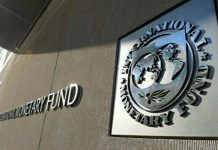DM Monitoring
Brasilia: Leaders from China and other member States arrived at Brasilia to attend BRICS summit. The summit this year is themed “BRICS: economic growth for an innovative future,” offers an opportunity to push forward their cooperation in scientific and technological innovation, as well as finance and digital economy, and to bolster their concerted drive to combat organized crime, narco-trafficking and money-laundering.
At last year’s summit in South Africa, BRICS agreed to build a partnership for a new industrial revolution, showing the members’ acute awareness of the need to tap cooperation potential in such groundbreaking areas as digital economy and smart manufacturing, so as to forge a more sustainable and robust engine for BRICS’ long-term development. The BRICS countries should march forward in this regard.
Currently, unilateralism and trade protectionism are rearing their ugly heads around the globe, and the world is undergoing profound changes unseen in a century. Just as Chinese President Xi Jinping has pointed out, the international community is facing “four deficits” in global affairs, namely governance deficit, trust deficit, peace deficit and development deficit. As a result, global free trade is losing steam, the prospects for economic growth have been dampened, and the international community is grappling with a huge amount of uncertainty.
Over the years, the BRICS members have held high the flag of multilateralism, played an important role in promoting openness, equality, transparency and inclusiveness in global governance, and become a major force for stability and progress in international affairs.
During last year’s summit, BRICS issued the Johannesburg Declaration, in which the leaders pledged to jointly strengthen multilateralism and speak up for a fairer, more equal, more democratic and more representative world order.
Stronger BRICS cooperation has also helped the emerging economies and developing countries enjoy a bigger say in global governance. So far, the BRICS countries have achieved substantial headway in quota and governance reforms in the International Monetary Fund (IMF) and the World Bank. In 2017, the bloc’s voting share in the World Bank rose to 13.24 percent, and its share in IMF climbed to 14.91 percent. In the throes and aftermath of the epic global financial crisis 10 years ago, BRICS members made a strategic decision to team up against the challenges of the times.
Agencies add: Jair Bolsonaro’s repeated bashing of China on the campaign trail last year left diplomats on both sides worried he might take a wrecking ball to one of the world’s biggest trading partnerships.
But 11 months into Bolsonaro’s presidency, the visit this week of his Chinese counterpart, Xi Jinping, for the BRICS summit looks set to complete a repair of the relationship. Presidents of the group of major emerging economies – Brazil, Russia, India, China and South Africa – will meet in Brazil’s capital on Wednesday and Thursday for what are widely expected to be low-key, technical discussions.



